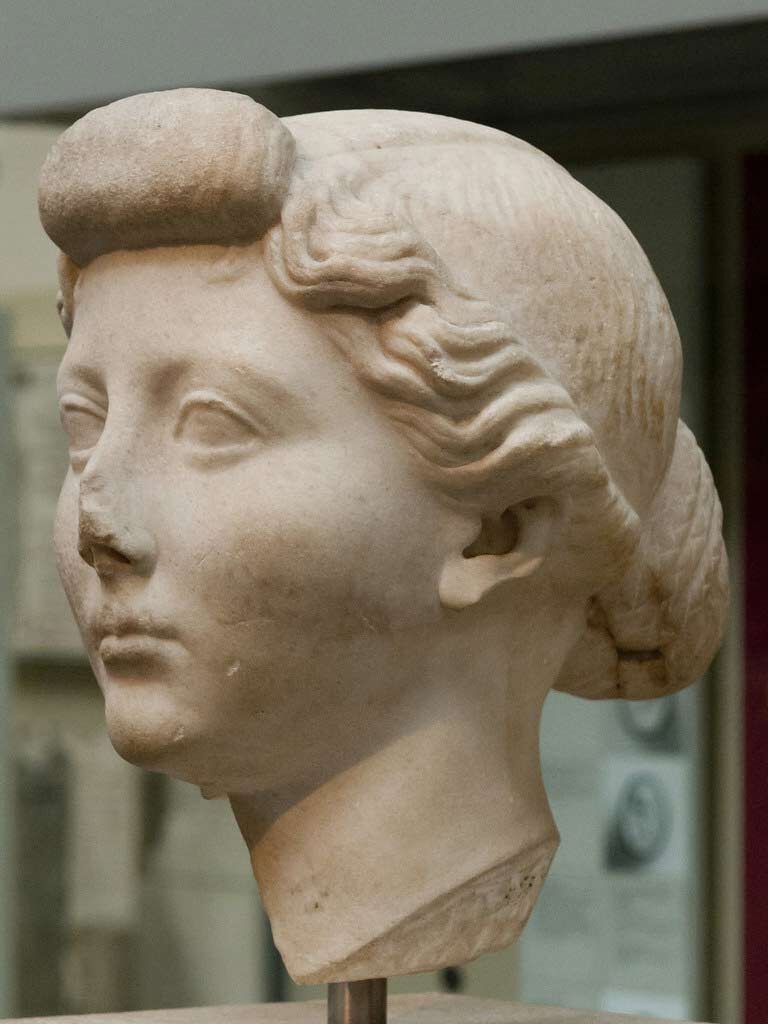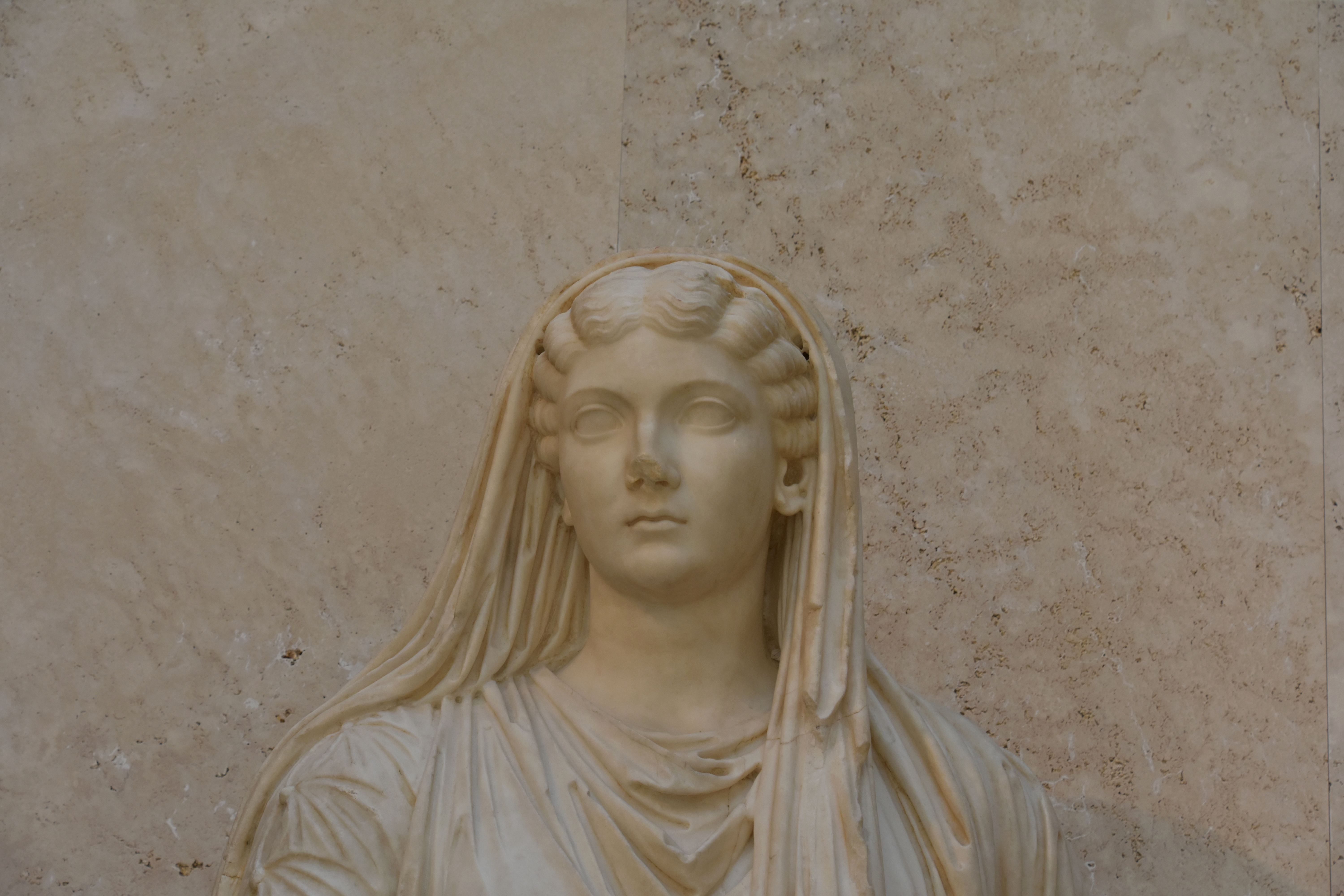Livia Drusilla, a prominent Roman empress, entered the world on the 30th of January, 59/58 BC. Her life unfolded during a pivotal period in Roman history, marked by the transition from the Roman Republic to the Roman Empire. In a twist of fate, she became the wife of the renowned Emperor Augustus, shaping her destiny and contributing significantly to the political landscape. From 27 BC until 14 AD, Livia Drusilla held the esteemed position of Roman Empress, casting her influence over the empire.
Livia Drusilla (Wife of Emperor Augustus) Interesting Facts
In the labyrinth of Roman history, the birth, lineage, and matrimonial bonds of Livia Drusilla form threads woven into the grand narrative of a bygone era. The union of Marcus Livius Drusus Claudianus and Alfidia, the pivotal role of Livia in the Claudian lineage, and her marriage to Tiberius Claudius Nero serve as keystones, each contributing to the complex mosaic of ancient Roman aristocracy and politics.
1. The Birth of Livia Drusilla
Marcus Livius Drusus Claudianus, a distinguished senator of ancient Rome, welcomed a precious addition to his family on January 30, 59 BC. The bearer of this significance was none other than his daughter, Livia Drusilla, born to his esteemed wife, Alfidia. The auspicious occasion marked the inception of a life that would intertwine with the fabric of Roman history, leaving an indelible mark for generations to come.
2. The Lineage of Senator Marcus Livius Drusus Claudianus
In the annals of Roman nobility, Senator Marcus Livius Drusus Claudianus occupied a prominent position. His union with Alfidia not only bestowed upon him familial joy but also solidified the foundations of a lineage that would play a pivotal role in the political and societal tapestry of ancient Rome. Within this union, their daughter, Livia, would emerge as a central figure, weaving her narrative amidst the intricate threads of Roman aristocracy.
3. Matrimonial Bonds: Livia and Tiberius Claudius Nero
The trajectory of Livia Drusilla’s life took a significant turn when she entered into matrimony with Tiberius Claudius Nero, a union forged in the crucible of Roman politics and aristocracy. Circa 43 BC, this marital alliance not only bound the destinies of two individuals but set the stage for a familial saga that would echo through the corridors of history. From this union sprang two children, Tiberius and Drusus, adding yet another layer to the intricate tapestry of the Claudian lineage.
4. Transformation into Julia Augusta
In the year AD 14, a formal adoption into the prestigious Julian family marked a transformative moment in Livia’s life. This adoption bestowed upon her the illustrious title of Julia Augusta, symbolizing her elevated status within the Roman hierarchy. This change represented more than a mere alteration in nomenclature; it solidified Livia Drusilla’s role as a key figure in the imperial lineage.
5. Continuing Influence After Augustus’ Death
The demise of Emperor Augustus in 14 AD did not diminish Livia’s political clout. Instead, it ushered in a new era where she continued to wield significant influence. As Tiberius ascended to the imperial throne following Augustus’ passing, Livia, as the emperor’s mother, played a pivotal role in shaping the political landscape. Her strategic acumen and unwavering presence ensured that her impact endured beyond her husband’s reign.
6. Dynastic Connections and Descendants
Livia Drusilla’s familial ties extended across generations, leaving an indelible mark on subsequent rulers of the Roman Empire. Notably, she held the distinction of being the great-grandmother of Caligula, the grandmother of Claudius, and the great-great-grandmother of Emperor Nero. This intricate web of relationships underscored the interconnectedness of Roman dynasties, with Livia as a central and influential figure in this intricate tapestry.
7. Posthumous Honors and Deification
Following Livia Drusilla’s death in 29 AD, her legacy endured through the generations. Her impact on the imperial lineage was commemorated when Claudius, recognizing her significance, accepted the title of Augusta that Livia had once held. This acknowledgment culminated in her deification in 42 AD, further solidifying her place in Roman history as a revered figure. Livia Drusilla’s interesting facts continue to unravel the complexities of her life, revealing a woman whose influence transcended her time and left an indelible mark on the annals of Roman history.
More Interesting Articles
- 30 Ronald Reagan Interesting Fun Facts- 40th US President
- 34 Jackson Pollock American Artist Interesting Fun Facts
- 50 Salvador Dali Spanish Artist Interesting Fun Facts
- 39 Michelangelo Italian Artist Interesting Fun Important Facts
- 21 Karl Marx Thinker Interesting Fun Important Facts
- 23 John Locke Philosopher Interesting Important Fun Facts
- 17 Dmitri Mendeleev Facts – The Father of Periodic Table
- 18 Fun Facts about Pocahontas – Colonial Settlement Leader
- 19 King Mansa Musa Facts – The Richest Man Ever from Mali
- The 10 Great Leaders of the French Revolution
- 11 Ares God of War in Greek Mythology Interesting Facts
- 11 Kratos Greek Mythology God of War and Power Facts
- 10 Thoth Egyptian God with Ibis Head Interesting Facts
- 23 Robert Frost Interesting Facts – Bio | Achievements | Works
- 21 Hercules Greek God Facts – Profile | Achievements | Labors
- 10 Top Romantic Era Poets – Bio | Works | Facts | Contributions
- 27 Martin Luther King JR – Biography | Interesting Fun Facts
- 10 Great Russian Novelists – Bio | Works | Contributions | Facts
- 24 Interesting Facts about Julius Caesar – Biography | Contributions
- 26 John F. Kennedy JFK – Biography – Fun, Interesting Facts

